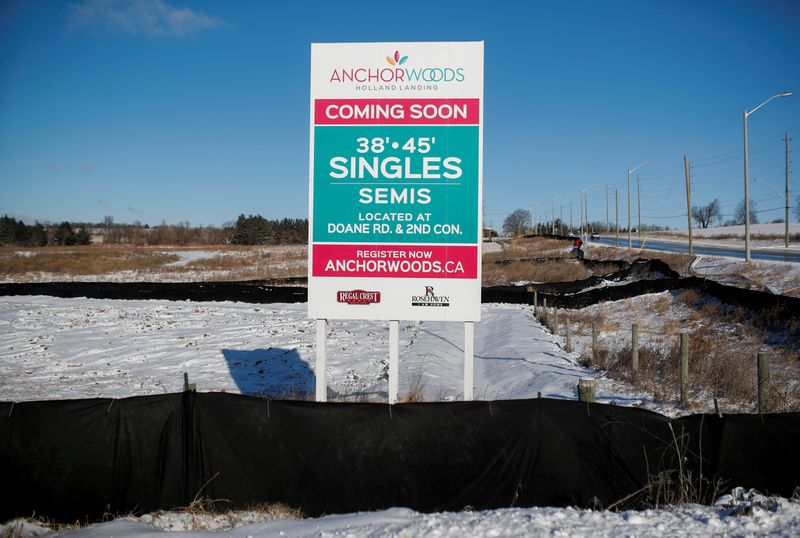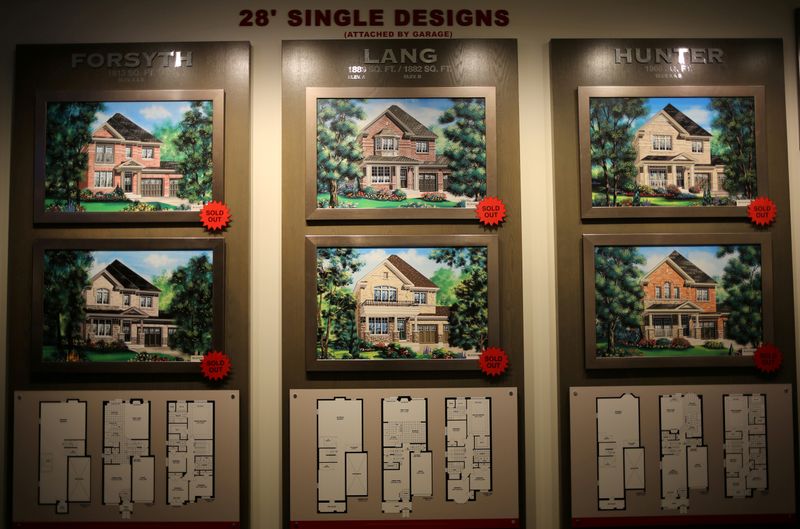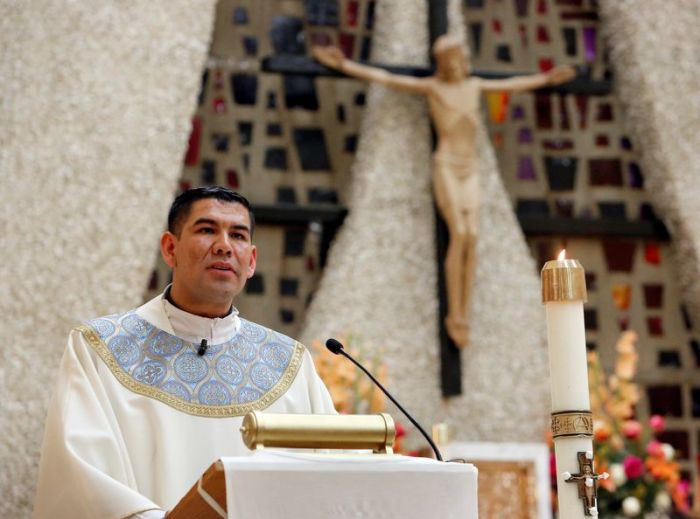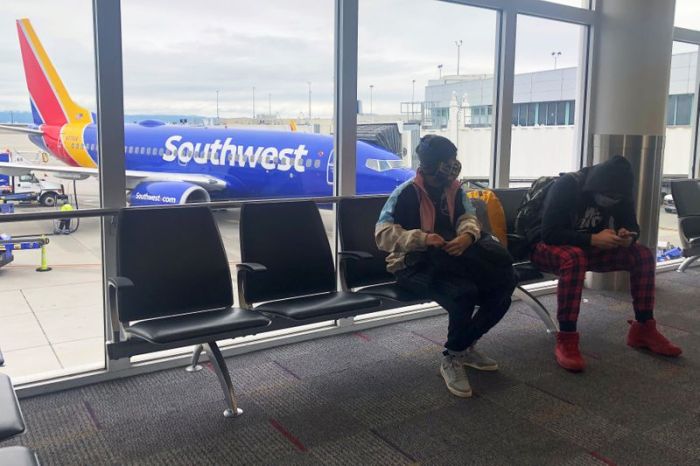TORONTO (Reuters) – In Canada’s typically busy home-selling season, wary buyers are donning masks and gloves to view properties while realtors offer virtual tours and coronavirus clauses as the real estate industry copes up with the outbreak.
Canadian home resales are forecast to fall by about 30% to a 20-year low this year, Royal Bank of Canada estimates. Home sales slumped 14.3% in March from February.
Armed with new COVID clauses, some agents are still trying.
The COVID clauses include confirming buyers’ health and recent-travel history and waivers that free the seller and agent from any liability in the event the client gets sick following a property viewing.
Toronto-based agent Alexandra Côté provided virtual tours of about 25 properties, using Skype calls and video tours, for clients recently before they zeroed in on one.
After her clients decided on a property, they and Côté, in masks and gloves, would visit the property in person. “I was actually surprised at how well it worked,” she said.
For an industry that relies on in-person visits and where purchases are influenced by touch and feel, the social-distancing restrictions have tempered buyers’ enthusiasm.
“Nothing is going to compare to viewing the house in person,” Royal LePage sales agent Tom Storey said. Storey’s team has seen a spike in virtual walk-throughs for their properties, despite having 95% of business on pause.
Vancouver real estate agent David Hutchinson now carries a “COVID kit,” consisting of gloves, masks, hand sanitizer and bleach. He had to recently abide by a rule prohibiting more than two people from entering a building during a property viewing.
Hutchinson has clients complete a questionnaire confirming they have not traveled in the past 14 days and are not feeling sick.
“It’s commonplace now,” he said.
But the Real Estate Council of Alberta is warning against the use of COVID clauses, saying it may not be in the seller’s or buyer’s best interests and advising parties to seek legal advice.
Todd Sanderson, an agent for Royal LePage in British Columbia, said his clients don’t open doors, touch light switches or anything in the property.
“They treat the homes like a museum,” he said.
(Editing by Denny Thomas and Steve Orlofsky)






















